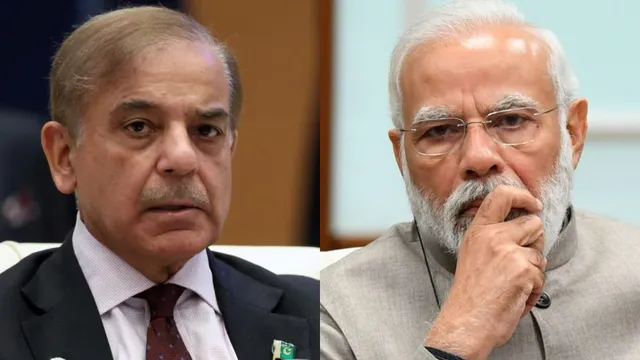- By Ajeet Kumar
- Fri, 29 Aug 2025 11:40 PM (IST)
- Source:JND
SCO Summit: Pakistan PM Shehbaz Sharif headed to China for the SCO Summit. The event will also be attended by Prime Minister Narendra Modi. As of now, neither side has shown any sign of talks between the two leaders. This will be the first time when PM Modi and Sharif will be in the same city after Pahalgam terror attack. The SCO Summit is slated to be held in China's Tianjin from August 30 to 31st.
Pakistan will not beg for talks: Dar
However, Pakistan's Foreign Minister Ishaq Dar on Friday said his country was ready for a composite dialogue with India in a dignified and respectful manner on all outstanding issues, including Kashmir. He, however, emphasised that “Pakistan will not beg for talks”. The statement came a day before
“Pakistan is ready for a composite dialogue with India in a dignified and respectful manner on all outstanding issues, including the Jammu and Kashmir dispute as per its longstanding position on the matter,” he said during an interaction with the media.
ALSO READ: PM Modi, Putin, And 20 Global Leaders To Attend SCO Summit; China Confirms Shehbaz Sharif’s Presence
India's sten stance on terrorism
India has made it clear that it will only have a dialogue with Pakistan on the return of Pakistan-occupied Kashmir and the issue of terrorism. The composite dialogue was launched in 2003 when General Pervez Musharraf was ruling Pakistan. It had eight baskets of components, containing all contentious issues between the two countries.
India-Pakistan dialgoue
The dialogue was derailed after the 2008 Mumbai attacks and not restored in proper form.
Talking about the recent conflict, Dar, who is also Deputy Prime Minister, claimed that Pakistan's narrative was accepted and acknowledged at the global level through proactive diplomacy.
Operation Sindoor
India carried out precision strikes under 'Operation Sindoor' on terror infrastructure early on May 7 in response to the April 22 Pahalgam terror attack that killed 26 people.
Following the Indian action, Pakistan attempted to attack Indian military bases on May 8, 9 and 10. The Indian forces launched a fierce counter-attack on several Pakistani military installations.
India and Pakistan reached an understanding on May 10 to end the conflict after four days of intense cross-border drone and missile strikes.
Responding to a question, Dar said that Pakistani forces proved their prowess in the air and on land in the conflict with India and warned of responding fully to "any provocation".
“Pakistan is also ready to respond with full force to India in case any aggression is committed, even through sea,” he said.
(With inputs from agency)

